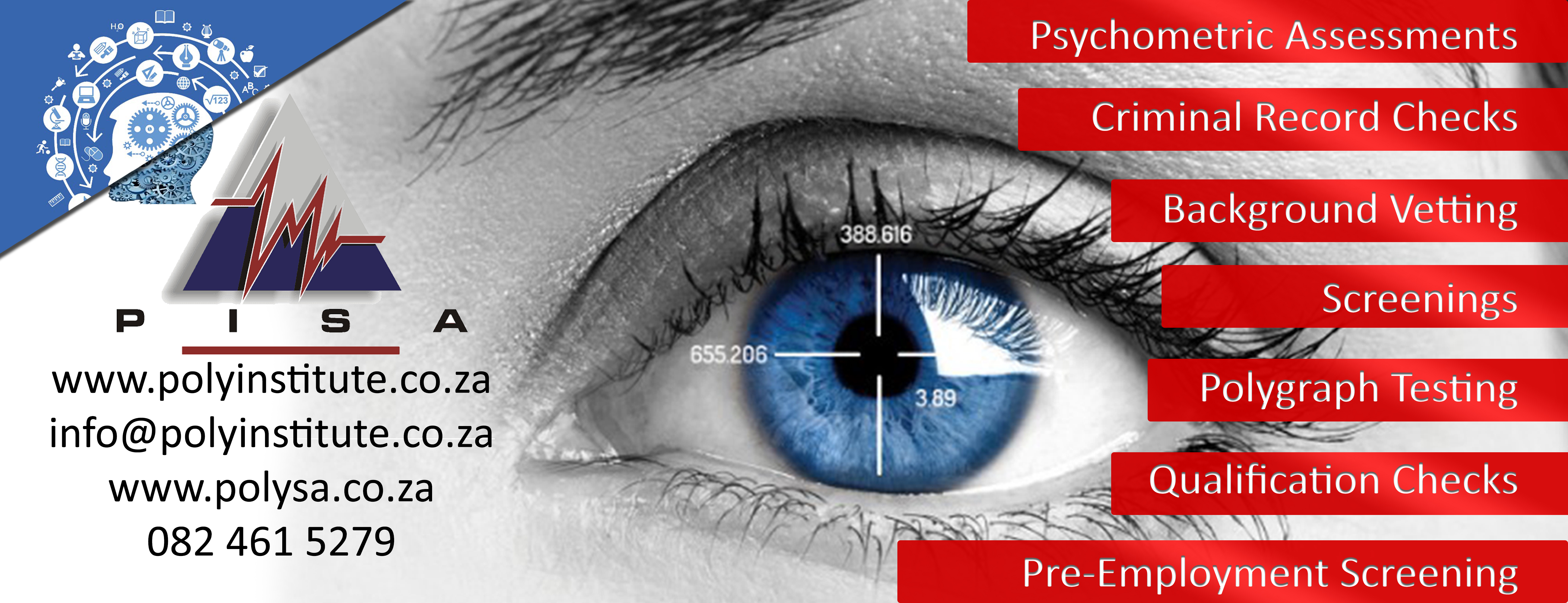Deception is an integral part of human nature. Although deception is usually seen as morally wrong, it is part of everyone’s existence. Do you know anyone, regardless of position, culture, race or gender who has never told a lie? Deception is usually linked to gaining some unjust advantage or avoiding negative consequences.
This means that deception is usually deliberate. Various attempts have been made through the years in finding a reliable method of differentiating between truth and deception, but the polygraph has remained the most effective means of establishing truthfulness or deception.
The working of the polygraph is based on the recording and interpretation of psycho-physiological changes in the body when someone is answering particular questions. These changes are the result of messages received through the autonomic nervous system. “Autonomic” means automatic or involuntary, so it deals with those aspects of the body that cannot be controlled voluntarily. It is helpful in the detection of deception because the individual being examined is unable to control these reactions in the body.
There are two branches to the autonomic nervous system. The first one has to do with growth and development, and the second one is an emergency system. These two parts operate in opposition to one another, which means that only one (usually the part that has to do with growth) is in control at any time. The emergency system becomes dominant only when there is some threat to an individual and he or she becomes fearful. For example, if you are walking down the street and a man suddenly approaches you and pulls out a knife, you will be alarmed. That message will register in the brain, and the brain in turn will send a message back to the autonomic nervous system to put the emergency system in control. When that happens, a series of physiological changes takes place that helps you cope with that situation. Your heart, for instance, contracts more quickly and strongly, which sends more blood throughout the body and provides it with nourishment so it can function more effectively. Your liver secretes sugar, giving you more energy, and the pupils of your eyes dilate so you can see better. The palms of your hands perspire so that you can grasp things more effectively, just as a baseball player spits on his hands to get a better grip on a baseball bat. These and other changes occur, allowing you to run faster, hit harder, or lift more so that you can get out of that dangerous situation.

The polygraph instrument records these physiological responses through four sensors. If you tell the truth, you will function at your normal physiological level. If you are asked a question to which you are going to lie, your brain will register a threat because you do not want to be caught in a lie. As soon as your brain registers the threat, your body automatically shifts into the emergency system. There is no way in which you can stop or control the physiological changes that will take place. It is this involuntary response, as opposed to the words you speak and which you can control, that makes the polygraph so effective.
The Polygraph records physiological responses and the polygraphist interprets the changes that occur in response to various questions. During a polygraph examination the threat is associated with being caught in a lie because of the possible consequences. Therefore the examinee’s deceptive responses cause sympathetic arousal and some of the physiologic changes that occur are then recorded. Once the subject responds and the deception is over and with it the threat, the Parasympathetic Nervous System being the strong dominant system fights to regain control and there is a sudden return back to the normal state. Because the individual does not have control over physiological responses, the recording of these changes in the body, by the polygraph, remains one of the most effective methods of establishing truthfulness.
How Can We Help You?
Do not hesitate to contact the PISA Integrity Assessment Centre and let our years of experience work for you. Whether you would like to make a booking, ask for a consultation or would like more information on how our multitude of products and service can benefit your business, we are ready and eager to assist in any way we can.
Would you like to contact us for a booking or consultation?
Would you like to know more about our products and services?
Would you like to know more about the company?
Would you like to know more about polygraph examinations and the law in South Africa?
Download the PISA Integrity Assessment Centre A4 advert: Download
Download the PISA Integrity Assessment Centre small advert: Download
Download the PISA Integrity Assessment Centre Tri-Fold Flyer: Download

For more information specifically related to polygraph examinations, please visit The Polygraph Institute of South Africa.
For more information specifically related to pre-employment screenings, please visit the Pre-Employment Screening Centre.
For more information specifically related to our psychometric assessments, please visit the PISA Psychometric Assessment Centre.